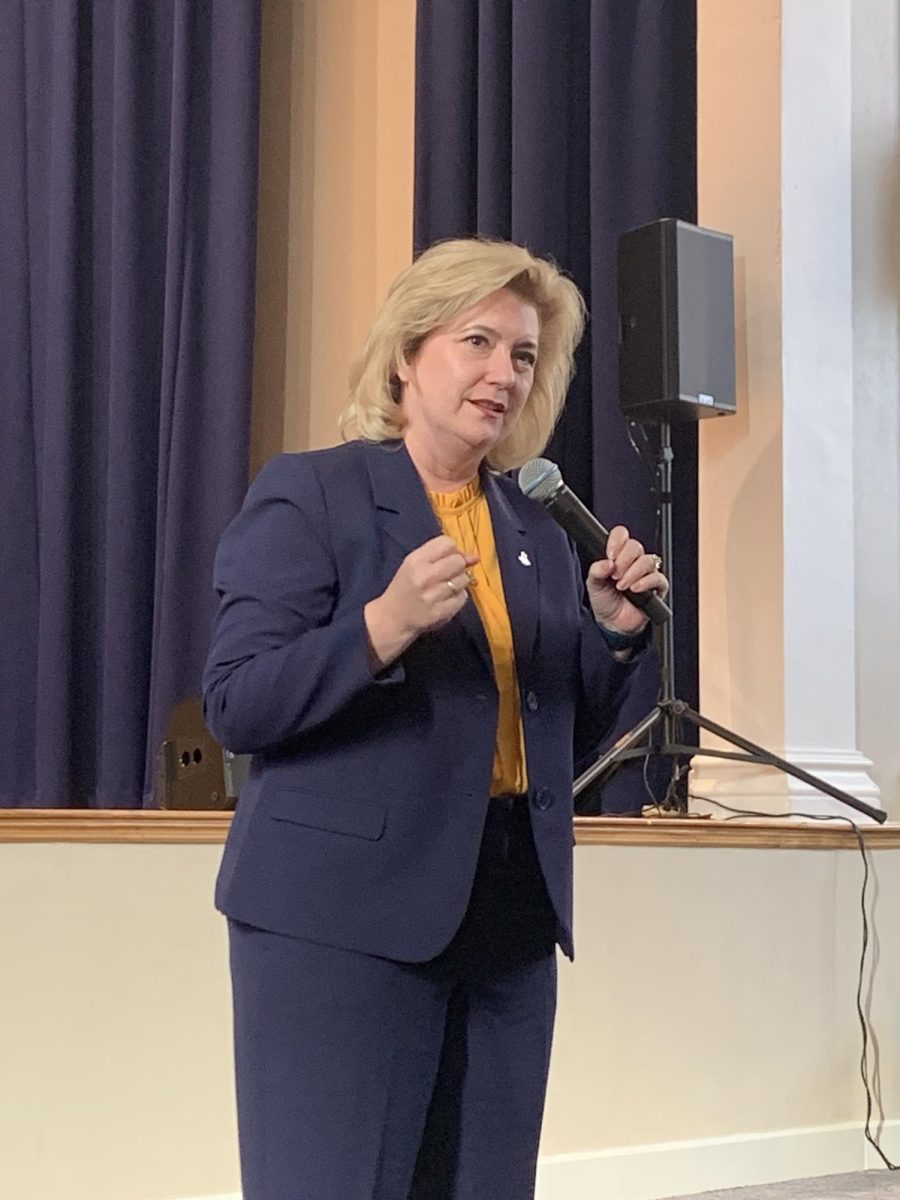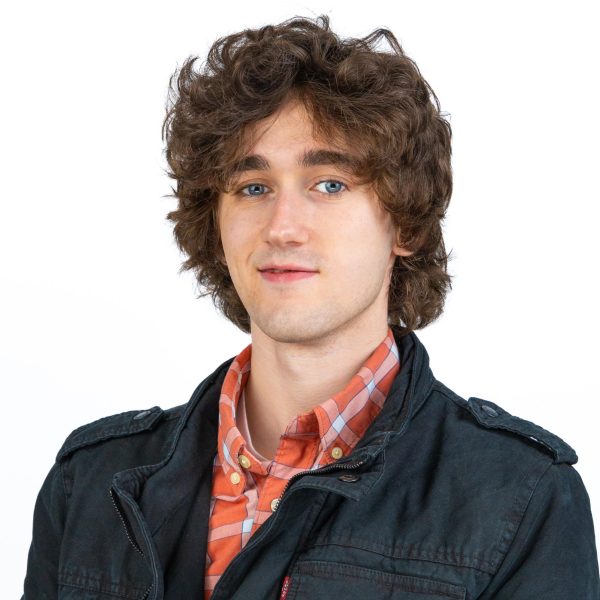University of South Florida (USF) Regional Chancellor & Murray State presidential candidate Christian Hardigree said engaging with one another at a university involves being inclusive in all decision-making, open and transparent, as well as publicly celebrating what is done and privately criticizing when falling short.
Hardigree is the fourth and final presidential candidate and spoke in an open forum, March 3rd, at Wrather Hall.
Hardigree said she’s been part of the faculty union at two different institutions and thinks having a voice at the seat of the table is important. She also said it takes responsibility.
“If you don’t vote, don’t complain,” Hardigree said. “So be active, be engaged. Make sure you have opportunities for your value to be heard whether that’s talking to a representative, serving as a senator or having coffee with the president.”
Hardigree said she likes to be accessible. She has an open-door policy, and a lot of students and staff at USF have her phone number. While she said “nothing after 10 p.m.” in regard to texts, she said anything sent after that time, she’ll respond first thing in the morning. Hardigree also said she doesn’t believe in meetings that could have been an email.
“Makes me nuts,” she said. “If we’re going to have a meeting, it needs to be meaningful and engaging.”
Hardigree also talked about higher education and being state funded, referencing the current political pressures on education and being compliant with the law, but also advocating “for the ability to serve students.”
“Diversity is the strength and core of higher education.” she said. “That is phenotype, that is lived-experience, that is interest—identity, that is what makes this so special. It is who we are. I used to work for a president who said, ‘You don’t circle the wagons and shoot in.’ We know what it means to be seen and valued, and bringing voices to the table, to be inclusive in our actions.”
USF offers an accredited program in Digital Communication and Multimedia Journalism, and Hardigree said she sits down with student reporters for interviews. She also said transparency is a value and “you’re either transparent or you’re not.”
“Look, folks,” she said. “I gotta be authentic. I think it’s really important that you have safe spaces to have conversations. There are times when you want to have conversations off the record, (but) for the most part everything’s on the record. Sitting down with a student and making sure they have the opportunity to ask the questions and get thoughtful responses is really important.”
Hadigree talked about open communication and said when USC had carbon monoxide detectors going off in a dorm, causing the building to evacuate, the university mass emailed students and kept RA’s “posted,” as well as updated their website regarding the situation.
Hardigree also said that two recent hurricanes, the “most impactful” her campus has seen, left “85 percent of campus underwater” and many buildings “still not working.” But, Hadigree said her university works with students to get them into other spaces and has made emergency shelters available.
“We have buildings we literally have to scrape and rebuild,” she said. “Our second hurricane was a wind event and we had wind 360 (degrees) around a building and water intrusion in virtually every single room. So, I had 352 students who were displaced for 17 days. We did a phased return of those students and we did a two million dollar remediation. And, I tell you, I rode that construction company like Zorro through a burning church because at the end of the day, I got students living in my ballroom … or they’re sofa-surfing or visiting a friend or having to go home. So, what’s really important—what’s critical is we make sure our students are in an environment where they feel safe.”
Hardigree said in an email to a reporter’s questions that her goal as a leader is to build a culture of trust, support and care
“In this environment, we should also feel empowered to hold one another accountable and safe enough to encourage our colleagues to take the time to create meaningful experiences for those we serve,” she said. “A culture of care isn’t just about individual actions—it’s about fostering an environment where we uplift and inspire each other to go above and beyond. We are a team in every sense.”
Hardigree said if she became Murray State’s president, her first action would be to make herself as accessible to students as possible to build the aforementioned trust.
“I want to hear their priorities firsthand and understand what matters most to them,” she said. “At USF St. Petersburg, I meet regularly with students, and more than 200 have my cell phone number, knowing they can reach out whenever they need. I want to cultivate that same open, supportive relationship at Murray State.”
Hadigree also said she’d “love to explore the interest and needs for the students” as she recognizes the “critical role mental health plays in student success.”
“For example, at USF St. Petersburg, we launched a comfort dog program last year with our new dog, Snowbird, and the impact has been incredible,” Hadigree said. “Seeing a stressed-out student find comfort and calm in Snowbird’s presence is truly inspiring. I want Murray State students to have access to the same kind of support—something as simple as time with a friendly, loving dog can make a world of difference in a student’s well-being. Maybe that’s not the right direction (for Murray State’s needs), but the student conversations can help refine what needs they may have that we can support.”



























































































